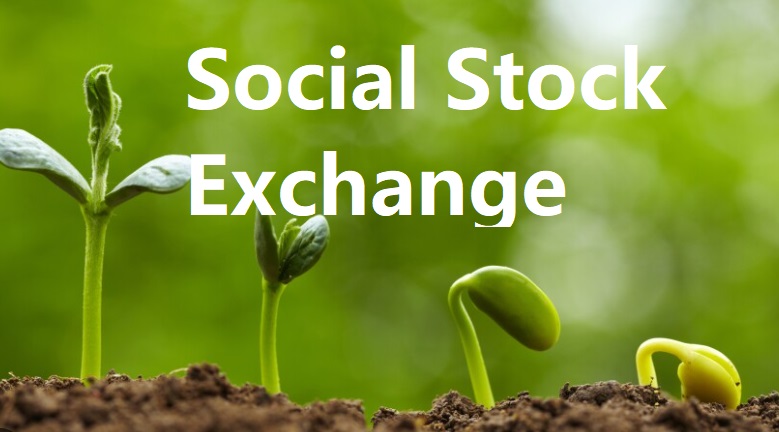The “Social Stock Exchange (SSE)” plays a pivotal role in advancing the ‘social development sector’ by creating a structured, transparent, and efficient mechanism for social enterprises and non-profits to access funding. Its importance in the sector can be understood through several key aspects:
Enhanced Access to Capital
The SSE provides ‘social enterprises’ and ‘non-profits’ with a platform to raise funds from a wide range of investors, including individuals, institutions, and philanthropic entities. By facilitating the listing of financial instruments like ‘social bonds’, ‘zero-coupon bonds’, and ‘impact-oriented mutual funds’, the SSE enables these organizations to attract more sustainable and diversified funding streams.
Promotes Transparency and Accountability
Organizations listed on the SSE must adhere to stringent requirements, such as disclosing ‘financial reports’, ‘social impact metrics’, and ‘fund utilization’ details. This creates a ‘transparent’ environment, where donors and impact investors can see how their money is being used, promoting ‘trust’ in the sector. It also encourages social enterprises to operate with ‘greater accountability’, ensuring that they focus on measurable outcomes and responsible use of funds.
Boosts Credibility of Social Organizations
Being listed on the SSE provides social enterprises with a ‘stamp of legitimacy’. This can help them establish credibility, not just with investors but also with other stakeholders, such as government bodies, communities, and corporate partners. The SSE sets ‘standards for governance’, financial management, and impact reporting, which can elevate the overall professionalism of the social sector.
Attracts Impact-Driven Investments
The SSE opens up new investment opportunities for ‘socially-conscious investors, looking to make a positive impact while earning financial returns. By creating financial products tied to social causes, the SSE taps into the growing trend of ‘impact investing’, allowing capital to flow into sectors like education, healthcare, gender equality, environmental sustainability, and poverty alleviation. This influx of capital can accelerate social change by funding scalable, impactful projects.
Supports Scalable Solutions
Social enterprises and non-profits often struggle to scale their operations due to limited funding. The SSE helps bridge this gap by offering a ‘regulated platform’ where these organizations can raise larger amounts of capital in a more structured manner. With greater funding, they can expand their social programs, reaching more people and tackling larger societal issues like hunger, climate change, and unemployment.
Encourages Innovation in the Social Sector
With greater access to capital and investment, organizations listed on the SSE are better positioned to ‘innovate’. This might involve creating new solutions to persistent problems or using technology and data to improve existing programs. The SSE helps drive a ‘culture of innovation’ by rewarding social enterprises that can demonstrate effective, scalable solutions to social challenges.
Aligns Private and Public Interests
The SSE helps align ‘private sector resources’ with ‘public sector goals’. By enabling corporate and institutional investors to support social causes through Corporate Social Responsibility (CSR) funds or impact investments, it brings together public interest and private capital. This creates a win-win scenario where businesses can fulfill their CSR obligations or achieve ESG (Environmental, Social, and Governance) goals while contributing to national and global development agendas.
Fosters Collaboration
The SSE serves as a networking platform, fostering collaboration between social organizations, governments, investors, and communities. By bringing together various stakeholders in the social development ecosystem, it creates opportunities for partnerships, knowledge sharing, and joint ventures aimed at tackling complex social issues.
Improves Efficiency in Fund Allocation
The structured nature of the SSE, with clearly defined metrics for performance and impact, ensures that funds are efficiently allocated to initiatives that have proven social value. This avoids mismanagement of funds and directs investment into areas that can generate measurable social outcomes.
Mobilizes Local and Global Resources
The SSE not only mobilizes domestic resources but can also attract global investors looking to support social development projects in India. It presents Indian social enterprises as investment-ready entities to international donors, philanthropic organizations, and impact funds, increasing the scope of funding available for social development.
Conclusion
The ‘Social Stock Exchange’ represents a critical shift in the way social enterprises and non-profits are funded, moving towards a more transparent, scalable, and investor-friendly approach. It bridges the gap between philanthropy and investment, making the social sector more robust and capable of addressing some of the world’s most pressing challenges. By providing a formal platform to raise capital, it empowers organizations to scale their impact, driving social change in a sustainable and measurable way.

